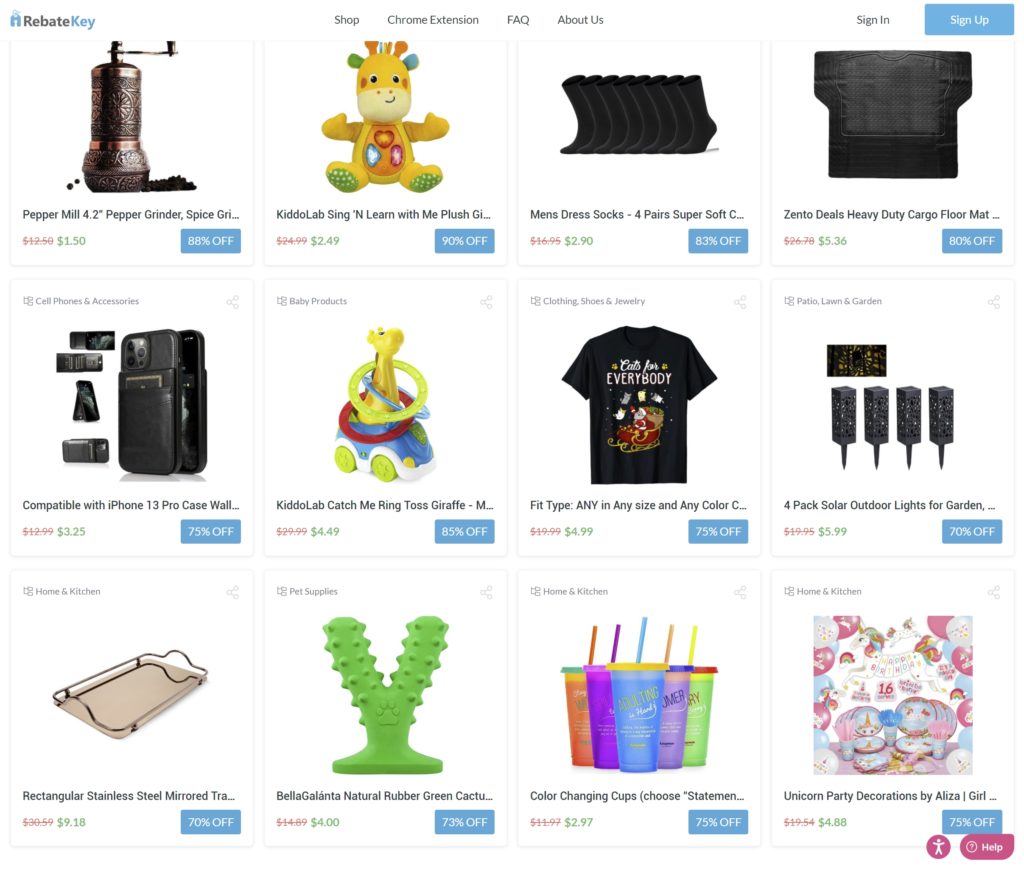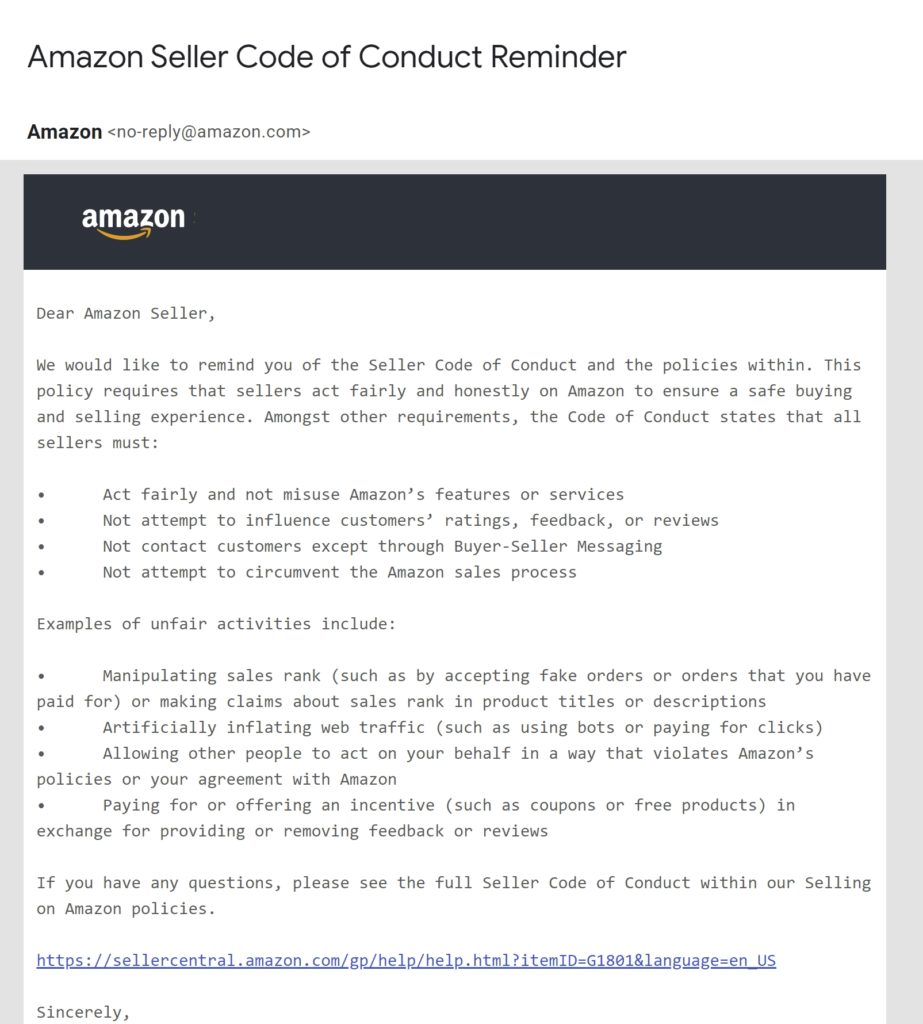Are Amazon Giveaways and Rebates Dead?

Last week, the Amazon seller universe was shaken when one of the most popular product giveaway tools, RebateKey, had its Amazon API privileges suspended. Concurrently with the suspension, users of the service were also emailed a Seller Code of Conduct policy reminder from Amazon warning against prohibited actions from sellers.
Product giveaways have been a hallmark of selling on Amazon for quite some time now. Product research tools like Helium 10 even give estimates to how many products you need to giveaway in order to rank a product. So does that mean that product giveaways are now a thing of the past on Amazon?
Why Is Amazon Cracking Down on Product Giveaways?
Amazon recently casually updated their Seller Code of Conduct language to make the subtle change described under “Acting Fairly” as below:
Previous Wording: Activities that could be perceived as attempting to manipulate Amazon's search results or sales rankings”.
New wording: Manipulating sales rank (such as by accepting fake orders or orders that you have paid for) or making claims about sales rank in product titles or descriptions.
Notice the part in parenthesis, “Accepting orders that you have paid for”, e.g., giving away products for a 100% discount through a service such as RebateKey.
Now why did Amazon decide to finally act on product giveaways after turning a blind eye for years? There could be many answers, but one of the reasons is likely because of increased scrutiny from the FTC over deceptive marketing practices.
Last week, the FTC issued letters to over 700 companies, including Amazon, warning them about potential penalties for fake reviews and deceptive endorsements. Earlier in the summer, the FTC had also made an inquiry to Amazon about what it is doing to stop sellers from using inserts to incentivize reviews.
While the FTC guidelines never mention anything about using rebates to manipulate sales rank on a marketplace, when many people browse an Amazon search results page they expect the first results to be legitimately the most popular products. It's conceivable that manipulating such search results could draw the ire of the FTC for being deceptive to consumers. Regardless, it would appear Amazon is hyper-sensitive at the moment to anyone trying to trick its search algorithm, whether with fake reviews or fake search rankings.
Does This Mean the End of Rebates and Product Giveaways?
It's hard to say if the RebateKey API suspension means the end of product giveaways and rebates. It's easy to argue it both ways.

Other product giveaway services seemingly have not had their services impacted, which would seem to indicate Amazon isn't totally against giving discounted products. However, most of these services give discounts on Amazon as opposed to outside of Amazon. This is likely where RebateKey got into trouble—it was deliberately trying to transact out of the watchful eye of Amazon by mailing checks to customers as opposed to giving them discounts or refunds on Amazon.
In my opinion, this is basically the line in the sand that Amazon is going to draw against RebateKey and other giveaway services. They'll tell them that they can give away products at as much of a discount as they want, but that discount needs to occur on Amazon and Amazon will decide how to assess those discounted sales in terms of sales ranking and organic search rankings.
It's also worth noting that RebateKey itself does not rely upon API access to Amazon. It just makes it more convenient in terms of verifying orders and issuing rebates. Conceivably, a tool like RebateKey could continue to exist even without API access to Amazon, although sellers would be seemingly taking a significant risk in light of the recent policy reminder email and revision of the Seller Code of Conduct.
Has Amazon Suspended Sellers Who Used Giveaways/Rebates?
Currently, no seller has had their seller account suspended for using RebateKey. However, after suspending RebateKey's API access, any seller who has given the tool MWS access to their account received a policy reminder from Amazon as below.

However, the policy reminder email did not result in an immediate policy warning from Amazon which can have significant ramifications for a seller's account health. Also, Amazon only recently revised its Seller Code of Conduct, and many sellers would argue they were not violating any policy prior to the amendment (although others could argue they were manipulating Amazon's search algorithm, which has been a longstanding policy).
In EcomCrew's Annual Amazon Software survey, 32% of respondents reported using some type of giveaway service in the past year with 13% of all respondents reporting having used RebateKey. This percentage would likely skew larger amongst high-volume sellers.
If Amazon did respond by suspending sellers, it could result in one of the largest account suspension sweeps in recent memory. If Amazon does take action against sellers, expect it to happen in the coming weeks as Amazon has a long-standing tradition of doing large account suspension sweeps during Q4, right before the holidays.
Conclusion
Amazon removing API access to RebateKey could be the first shots fired in its battle with search algorithm manipulation. Previously, most of Amazon's efforts have been in combating fake reviews and counterfeit products. Whether the battle with RebateKey is foreshadowing a major account suspension sweep remains to be seen. The answer will likely be revealed within the coming weeks.



